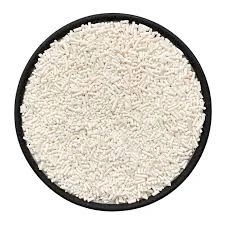
Effectiveness of Commercial Cake Preservatives in Extending Shelf Life and Freshness
The Importance of Commercial Cake Preservatives
In the world of baked goods, especially cakes, the joy of indulging in a fresh slice is a universal experience. Whether it's for a birthday, wedding, or just an everyday treat, cakes hold a special place in our hearts. However, one of the challenges faced by bakers—both commercial and home—is preserving that delightful freshness. This is where commercial cake preservatives come into play.
Understanding Cake Preservatives
Commercial cake preservatives are substances added to cake mixtures to prolong shelf life, maintain texture, and ensure the overall quality of the product over time. These preservatives can be natural or synthetic, each serving the crucial role of inhibiting microbial growth, delaying spoilage, and minimizing staleness.
Natural Preservatives These include ingredients like vinegar, honey, and salt, which have inherent properties that deter spoilage. For instance, vinegar not only adds to the flavor but also adjusts the pH, creating an environment less conducive to bacteria.
Synthetic Preservatives Ingredients such as potassium sorbate and sodium benzoate are commonly used in the industry. These compounds are effective at preventing mold growth and prolonging shelf life, which is especially important in mass production settings where cakes may be distributed over long distances and stored for extended periods.
Why Are Preservatives Necessary?
The need for preservatives in commercial cakes stems from various factors
1. Shelf Life Unlike home-baked cakes that are often consumed quickly, commercially produced cakes need to last longer on the shelves. Preservatives help in maintaining consistency and quality over time.
commercial cake preservatives

2. Microbial Growth Cakes are vulnerable to contamination from bacteria and molds, particularly once they are exposed to air. Preservatives prevent these microorganisms from thriving, ensuring that the cake remains safe to eat for a longer duration.
3. Cost-Effectiveness For commercial bakeries, minimizing waste is crucial. Preservatives help reduce the frequency of spoilage and loss due to mold, leading to better profit margins.
4. Consumer Expectations In today's fast-paced society, consumers expect convenience without sacrificing quality. They desire products that not only taste good but also have a longer shelf life, especially when purchased in bulk.
The Debate Around Preservatives
While there are clear benefits to using cake preservatives, the topic is not without controversy. Some consumers prefer natural products and are wary of synthetic additives due to health concerns. This has led to a growing trend in clean label products—items that are free from artificial ingredients and preservatives. In response, many companies are now focusing on developing cakes with natural preservatives and clear ingredient lists, catering to health-conscious consumers.
Regulations and Safety
The use of preservatives in food is heavily regulated by health authorities to ensure safety. In places like the United States, the Food and Drug Administration (FDA) monitors the usage levels of these substances. It is essential for manufacturers to adhere to these regulations to ensure their products are safe for consumption. Intensive research is conducted to establish the acceptable daily intake of synthetic preservatives, ensuring they do not pose a risk to human health when consumed in normal quantities.
Conclusion
Commercial cake preservatives play a vital role in the baking industry, ensuring that consumers receive safe, high-quality products. While the debate over natural versus synthetic preservatives continues, the ultimate goal remains the same to deliver delicious cakes that can be enjoyed over time without compromising taste or safety. As consumer preferences continue to evolve, we can expect the industry to adapt, finding innovative solutions that marry convenience with health consciousness. Ultimately, the key lies in balance, ensuring that the sweet indulgence of cake remains a delightful treat for all.
-
Pure Sodium Dichloroisocyanurate Dihydrate | Powerful DisinfectantNewsAug.29,2025
-
Industrial Chemicals: Quality & Purity for Every IndustryNewsAug.28,2025
-
Nitrile Rubber Honoring Strict Production StandardsNewsAug.22,2025
-
Aspartame Ingredients Honoring Food Safety ValuesNewsAug.22,2025
-
Fertilizer for Balanced Plant NutritionNewsAug.22,2025
-
Cyanide Gold Processing with High Purity AdditivesNewsAug.22,2025
-
Formic Acid in Textile Dyeing ApplicationsNewsAug.22,2025
Hebei Tenger Chemical Technology Co., Ltd. focuses on the chemical industry and is committed to the export service of chemical raw materials.
-

view more DiethanolisopropanolamineIn the ever-growing field of chemical solutions, diethanolisopropanolamine (DEIPA) stands out as a versatile and important compound. Due to its unique chemical structure and properties, DEIPA is of interest to various industries including construction, personal care, and agriculture. -

view more TriisopropanolamineTriisopropanolamine (TIPA) alkanol amine substance, is a kind of alcohol amine compound with amino and alcohol hydroxyl, and because of its molecules contains both amino and hydroxyl. -

view more Tetramethyl Thiuram DisulfideTetramethyl thiuram disulfide, also known as TMTD, is a white to light-yellow powder with a distinct sulfur-like odor. It is soluble in organic solvents such as benzene, acetone, and ethyl acetate, making it highly versatile for use in different formulations. TMTD is known for its excellent vulcanization acceleration properties, which makes it a key ingredient in the production of rubber products. Additionally, it acts as an effective fungicide and bactericide, making it valuable in agricultural applications. Its high purity and stability ensure consistent performance, making it a preferred choice for manufacturers across various industries.





